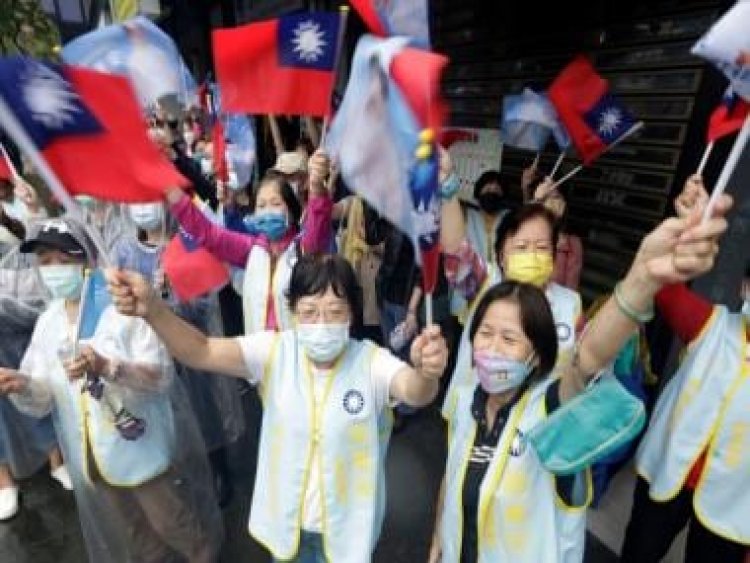Here's why Taiwan elections are crucial for Beijing
Here's why Taiwan elections are crucial for Beijing

Taipei: Local elections across Taiwan will be held on Saturday. The Democratic Progressive Party (DPP), which is in power, has been fighting off rivals in key polls. The elections that are held every four years, also known as “Taiwan’s midterms,” are a crucial test of the support for the ruling DPP ahead of the presidential elections in 2024.
This election marks the first national vote since China’s recent military escalation in August towards the island that it claims as its territory.
Beijing’s one-China principle
According to Beijing’s one-China principle, Taiwan is an unbreakable part of its territory and will one day be unified with the homeland. It stated that the “Constitution of the Republic of China,” has a substantial “one-China” element because it views both Taiwan and the Chinese mainland as being a part of China.
Chinese President Xi Jinping has unity as one of his top priorities. Taiwan’s president, Tsai Ing-wen, claims that there is no need to declare independence because Taiwan is already a sovereign nation. Beijing, however, views Taiwan’s democratically elected government as a separatist.
Additionally, Taiwan’s vibrant democracy is perceived by Beijing as a threat to the Chinese Communist Party (CCP)’s rightfulness. This also explains why China has been meddling in the island’s political process through various means including misinformation, diplomatic suppression, economic coercion and others.
Local elections focus on China-Taiwan issues
Generally, the local elections focus on domestic issues including housing, electricity and social welfare. However this time around especially after China’s escalation, President Tsai Ing-wen has urged voters to utilise these elections to stand up to China and demonstrate that Taiwan’s democracy will not be intimidated.
Despite his denials of being pro-China, the primary opposition party KMT has always been perceived as maintaining strong ties with Beijing. During his campaigns, he has avoided campaigning on topics related to China and has instead focused more on internal matters.
On the other hand, pro-independence party candidates such as Taipei mayoral candidate Chen Shih-chung, a former minister of health with the DPP, have pledged not to bow to China.
It is pertinent to mention here that this time’s vote also enables the proposed constitutional amendment of dropping the voting age from 20 to 18 for the first time ever. The proposal has irked Beijing as young Taiwanese are increasingly in favour of independence and are enthused about democracy.
China-Taiwan tensions
The Republic of China (ROC) government was established in exile when the Kuomintang administration after losing the Chinese Civil War withdrew to the island of Taiwan. The People’s Republic of China was founded on the Chinese mainland by the Communist Party of China (CCP).
Taiwan has enjoyed de facto independence since the end of the civil war, and the CCP has never held power there. Taiwan has developed into a thriving democracy with free elections and media since the decades-long martial law era ended in the 1980s.
Today, less than 15 foreign governments recognise the ROC (Taiwan) as a country. This shift in formal links from the ROC to Beijing began in the 1970s.
In recent years, under Xi’s leadership, China has sent numerous warplanes into Taiwan as part of ‘grey zone’ activities, which are combat-proximate but do not get to the level of war. In an effort to prevent Xi Jinping-led China, Taiwan is currently working towards modernising its military and purchasing significant quantities of military equipment and weaponry from the US.
Read all the Latest News, Trending News, Cricket News, Bollywood News,
India News and Entertainment News here. Follow us on Facebook, Twitter and Instagram.
What's Your Reaction?



























































